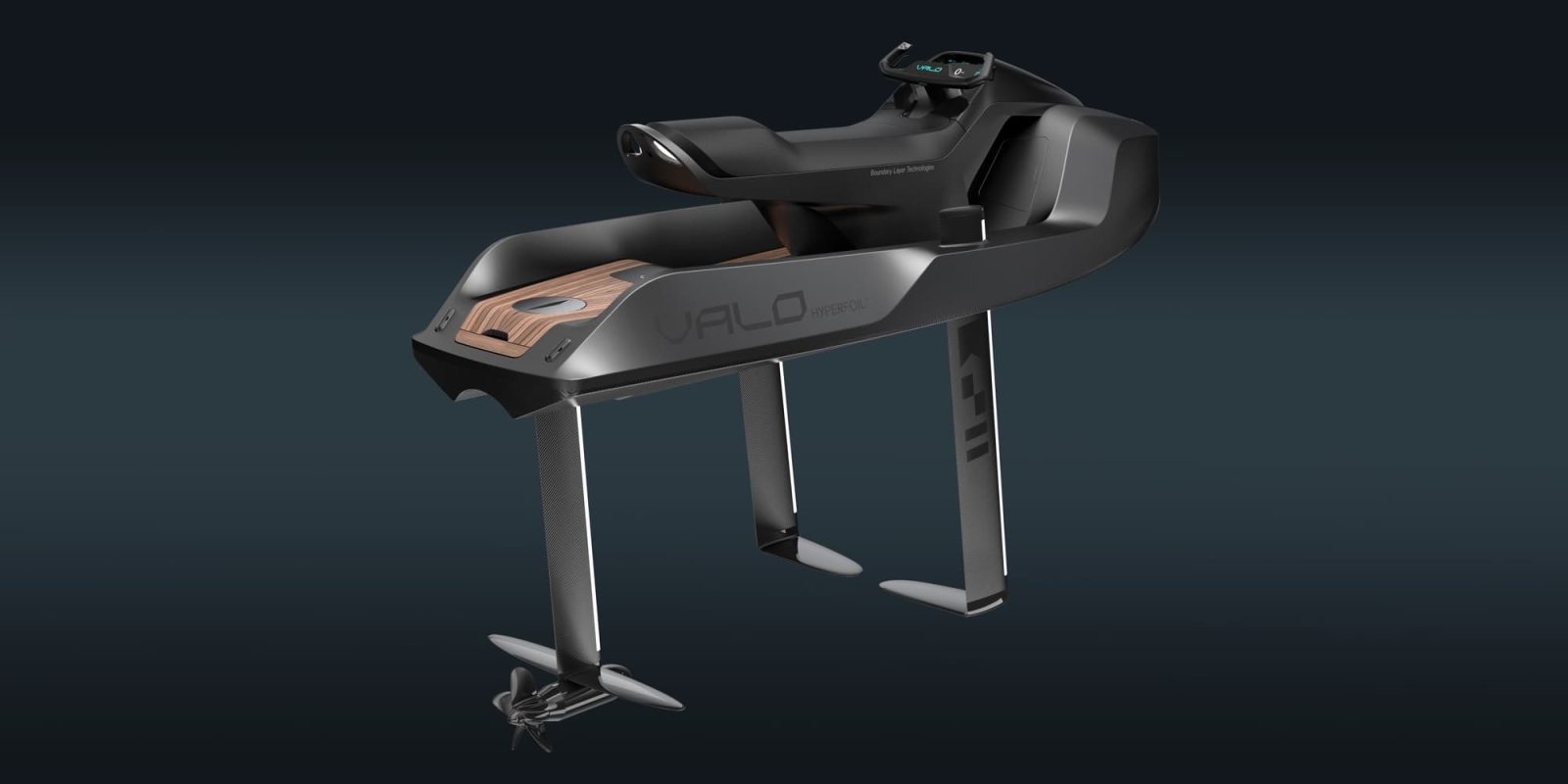California-based startup unveils 58 mph electric jet ski on hydrofoils

It’s an exciting time for personal watercraft enthusiasts who want to swap a roaring engine for the instantaneous (and silent) power of electric motors. The latest electric jet ski making a splash is the Valo Hyperfoil.
The post California-based startup unveils 58 mph electric jet ski on hydrofoils appeared first on Electrek.
It’s an exciting time for personal watercraft enthusiasts who want to swap a roaring engine for the instantaneous (and silent) power of electric motors. The latest electric jet ski making a splash is the Valo Hyperfoil.
Technically speaking, it’s not actually a jet ski, nor is it making that much of a splash. “Jet Ski” is a brand name owned by Kawasaki, and the Valo Hyperfoil isn’t really making a splash because it’s actually flying above the waves on hydrofoils.
But whatever you call it and whichever hydro-based pun you shoehorn into an electric watercraft article, the Valo Hyperfoil is certainly an impressive machine.
Unveiled today by California-based startup Boundary Layer Technologies, the Valo Hyperfoil is one of the most advanced personal electric watercraft we’ve ever seen.
Not only is it quite powerful, packing in a 108 hp (80 kW) motor, but it can reach a maximum speed of 50 knots (58 mph or 93 km/h).
And it will do so while flying a full 2 feet (60 cm) above the surface of the water.
As founder and CEO of Boundary Layer Technologies Ed Kearny explained in a statement provided to Electrek:
Valo will be a complete revolution to personal watercraft. The first Jetski was on the market 50 years ago this year, and it’s time for a major upgrade. Valo will be fast, agile, and tremendously exhilarating, all while being near silent and leaving zero wake. It will be like flying a stunt plane but on water. We see this as a completely new form of water based mobility.
The secret to the flying nature of the Valo is its hydrofoils, which function like a set of airplane wings under water.
They lift the watercraft out of the dense water, helping it to save energy by flying through the air. That makes the ride smoother, faster, and more efficient. It also means that the Valo can get by with fewer of those heavy and expensive batteries.
The company has spent the last four years developing hydrofoil technology for commercial purposes, such as passenger ferries and container ships. Now the company is hoping to apply that technology to the recreational market with a personal electric watercraft.
As Kearny continued:
We are passionate about bringing foiling technology and its huge benefits to ships big and small. We simply shifted from “big first” to “fast first.” What we love about Valo is how fast we can get to market. We are bringing all the technology we were developing for massive container ships and ferries and using it to deliver one hell of a recreational product.
Hydrofoiling boats have been made famous by the Swedish company Candela, which is already building and delivering electric speedboats with impressive hydrofoiling performance. The company is also working on passenger ferries and water taxis for commercial use, but hasn’t shown off a personal electric watercraft like the Valo.
Other companies like Taiga have leveraged their electric snowmobile technology to demonstrate personal electric watercraft. But their planing hulls will have a hard time matching the efficiency of hydrofoils like those displayed on the Valo.
Boundary Layer Technologies expects to have a small number of limited-edition Founders Edition Valos by the summer of 2023. Full-production vehicles aren’t expected to hit the water before 2024. The anticipated price for the production vehicles is $59,000, though we don’t yet know what price tag those first-run Founders Edition vehicles will carry.
Until then, we can at least look at these pretty renders.
FTC: We use income earning auto affiliate links. More.
